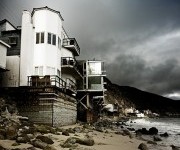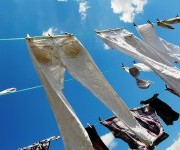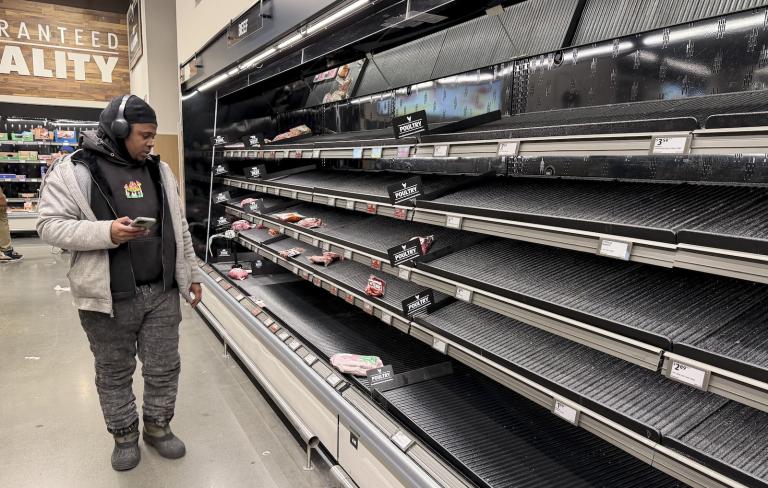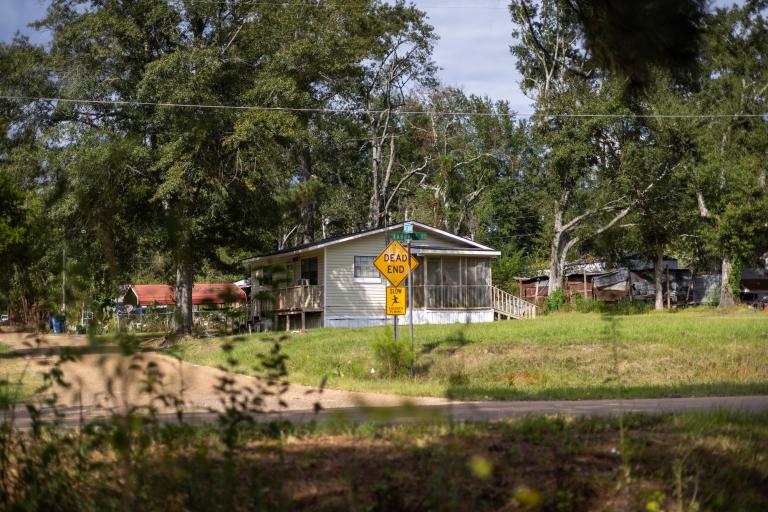Send your question to Umbra!
Q. Dear Umbra,
Is it legal for the neighborhood ass. to forbid a clothesline in the area of residence which it controls?
Bill H.
Titusville, Fla.
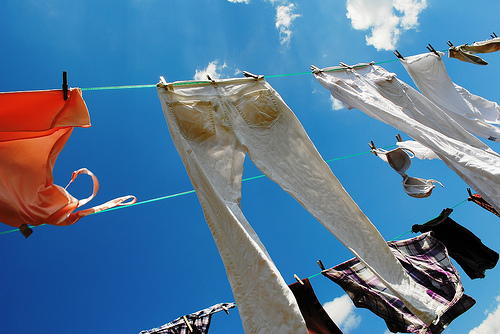 Photo: PeppysisA. Dearest Bill,
Photo: PeppysisA. Dearest Bill,
I was going to spell out your abbreviation for association, but I decided to let your (perhaps intentional) shorthand stand. Because yes, it is legal in many places to ban clotheslines, and ass.es across the country do just that.
Why? They don’t want to look at your underwear. That’s the long and short of it, although cited reasons include safety, property values, and public nuisance concerns. Of course there is a tangle of class and cultural prejudice at play as well.
So for the 60 million or so Americans whose lives are governed by homeowners associations (HOAs), clotheslines are likely to be truly unmentionable. The advocacy group Project Laundry List is building a list of known bans, and our friends at the Sightline Institute have started a similar and fast-filling Google map .
The good news, Bill, is that several states have passed laws prohibiting such prohibitions, your Sunshine State among them. In fact, Florida is widely considered by the growing right-to-dry movement to be a role model for such legislation. (And if your neighborhood group is trying to institute a ban, you should flap your state law in its face.) In recent years, other states have followed suit in some fashion, including Colorado, Hawaii, Maine, Maryland, Utah, and Vermont; up north, Nova Scotia and Ontario have banned bans as well. Oregon, Virginia, and North Carolina have considered, but failed to pass, similar legislation (read this eye-opening account of how one debate devolved into snickers over knickers).
While this might appear to be a minor issue, the clothesline brouhaha ties into a broader battle over clean energy, since HOAs often prohibit the installation of solar panels too. (So unsightly, don’t you know.) The state laws I mention above are intended to promote all forms of solar power, including the low-tech type represented by clotheslines. The New York Times has dubbed HOAs the “enemy of solar,” and there have been stabs at federal legislation that would forbid prohibitions on solar installations — including this year — but so far, no dice.
So what can you do about your duds if your HOA hasn’t seen the light? One approach is to broach alternative solutions. Some associations are open to retractable clotheslines. And reader Wright G. of Dorchester, Mass., wrote to tell me that “in my area, until clothes dryers became ubiquitous, many people built a three-sided latticework pergola sort of structure and put the clotheslines inside … the structure is attractive (and can be used as a trellis for cucumbers or tomatoes or flowers). Problem solved!!!!!” Points for creativity, and for enthusiastic use of punctuation.
If your HOA won’t budge, don’t give up: Clothes dryers burn a full 6 percent of our home energy and are the second-hoggiest appliances after our refrigerators. So string a clothesline in your basement or garage or bedroom, or see my previous advice on various types of drying racks. Drape your clothes on hooks and chairs and bookshelves. When you do laundry, heed these energy-saving tips. And prance around in your skivvies — if the HOA board asks, tell ’em Umbra sent you.
Retractably,
Umbra
